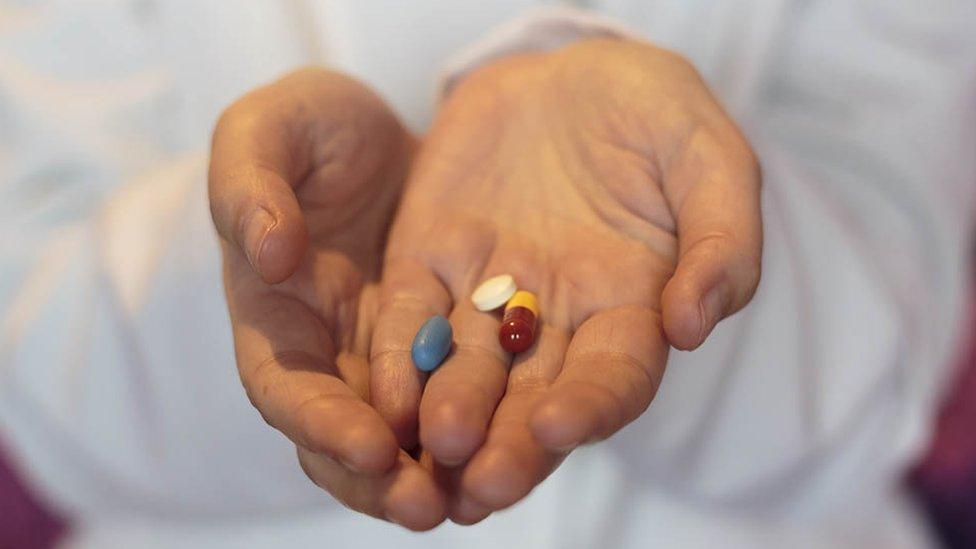Covid-19: NI doctors and patients join search for treatments
- Published
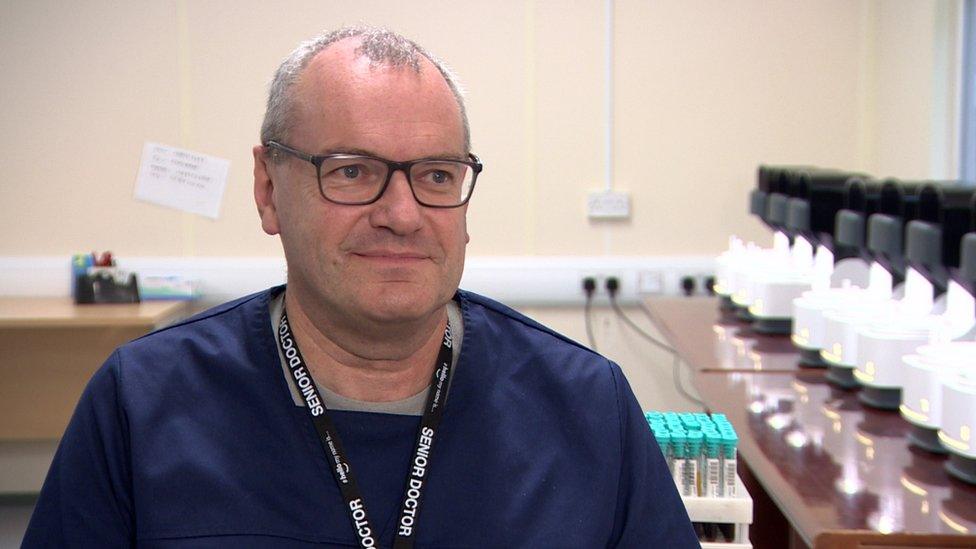
Dr Peter Sharpe says research is essential for finding new ways of treatuing Covid-19
It is hoped that vaccines will eventually offer the world a way out of the coronavirus pandemic.
But in the meantime research is helping to save the lives of those who are still getting sick.
Craigavon Area Hospital is one of 200 centres around the UK taking part in the Recovery Trial, the biggest Covid-19 research programme in the world.
About 150 participants have been recruited at the hospital, more than any other in Northern Ireland.
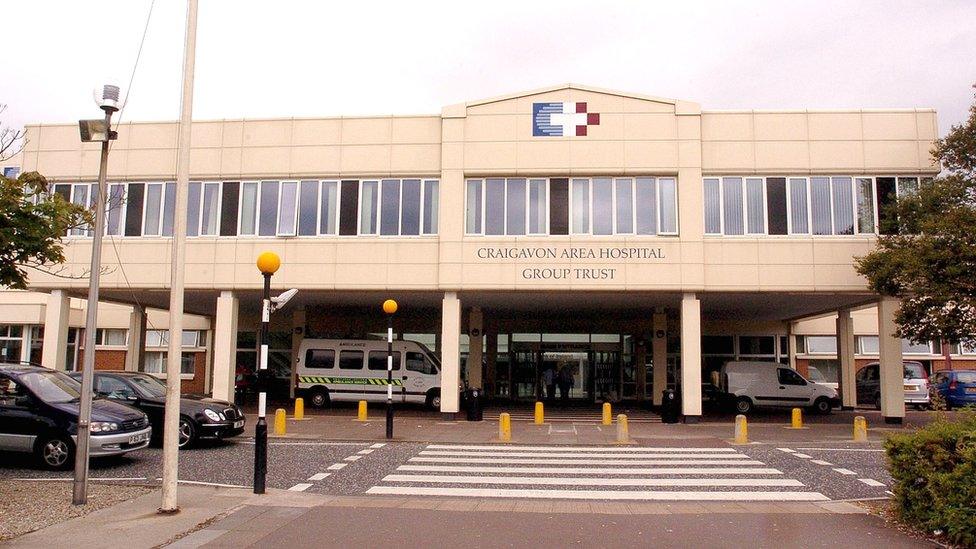
Craigavon Area Hospital is one of 200 UK centres taking part in the Recovery Trial
The trial is looking at repurposing existing drugs that may have an effect on the duration and severity of illness.
It is because of the Recovery Trial that the anti-inflammatory drug dexamethasone was discovered to have an effect on Covid-19 sickness.
The trial also looks at new treatments, like convalescent plasma and monoclonal antibodies.
The first is based on antibodies extracted from the blood of a person who has had Covid-19, while monoclonal antibodies are manufactured from a white blood cell.
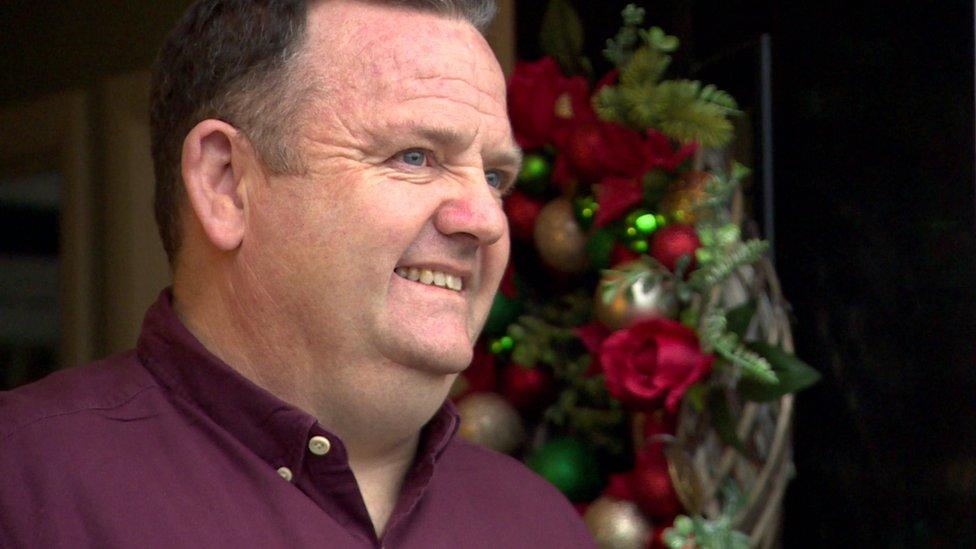
Charlie Fearnon received two transfusions of convalescent plasma
"Research is the only way we can discover new treatments," said Dr Peter Sharpe, associate medical director for research and development at the Southern Health Trust.
"We can discover problems that maybe occur with some treatments and maybe modify those treatments, and also find out who gets the best benefit from treatments and who may not get any benefit, so it is important to continue research on all of those aspects."
'Gasping for breath'
One patient who benefitted from the research was Charlie Fearnon, who contracted the virus in November and spent almost a fortnight in Craigavon Area Hospital.
While he wasn't intubated, he still needed a machine to push air into his lungs to help with his breathing.
"I was just gasping for breath - I hadn't a puff," he recalled.
"Even with the oxygen going down the nose with the small mask it wasn't enough - it just wasn't enough."
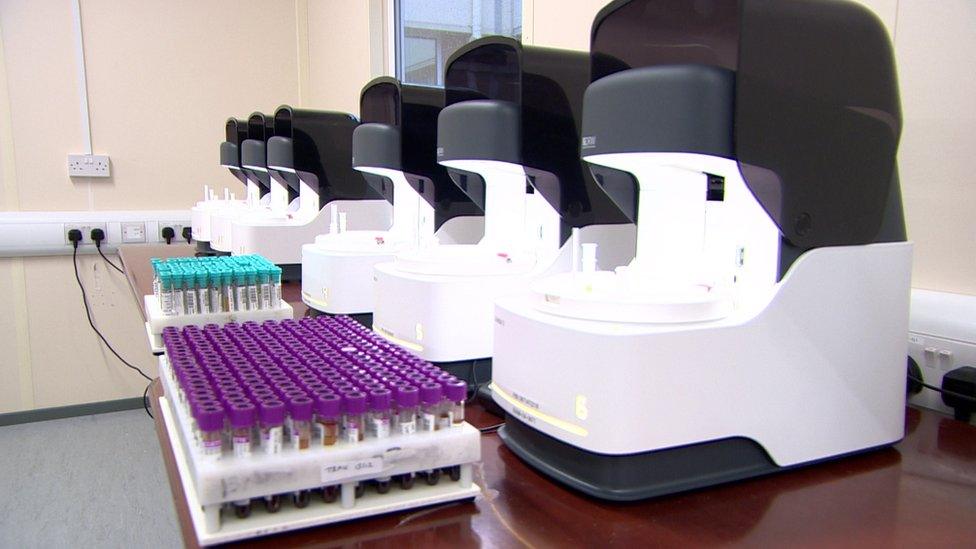
The trial looks at new treatments, such as convalescent plasma and monoclonal antibodies
His respiratory consultant Dr Rory Convery asked him if he would like to take part in the research and he jumped at the chance.
"We entered his details into the trial computer and he was randomised to convalescent plasma and he had a good response to it," said Dr Convery.
After an electrocardiogram (ECG) to check his heart was strong enough for the treatment, Charlie received two transfusions of plasma 24 hours apart.
He was able to go home within a week of the treatment but his recovery still has a way to go.
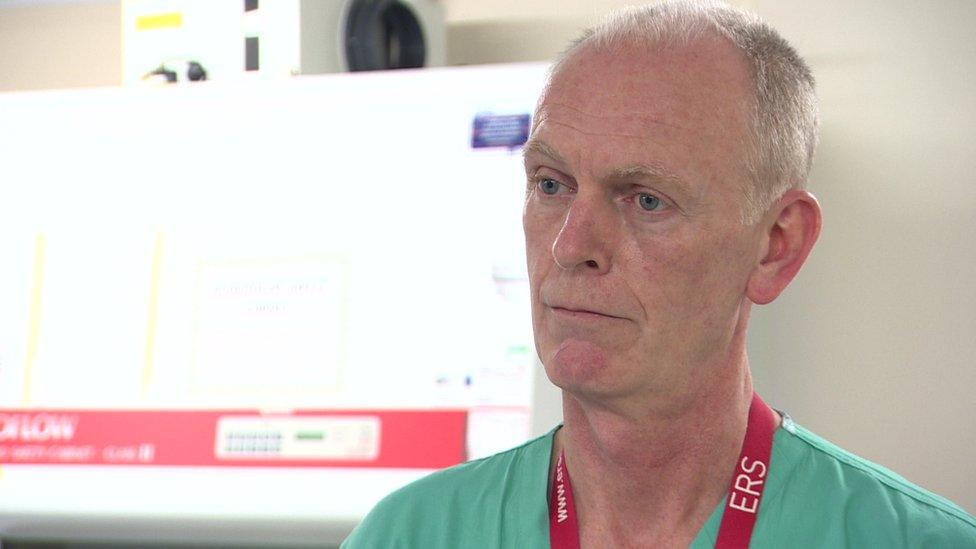
Dr Rory Convery says the hospital's involvement in the research has been good for staff morale
"At the minute if I'm just sitting about doing nothing I don't feel too bad but once I get up to do anything I'm just completely out of breath.
"But they said that's all part of the healing process - I've no energy, I've no strength.
"They say it'll all come back eventually - I'm hoping."
'Lasting legacy'
Being involved in research is benefitting patients and staff as well.
"It gives [patients] the opportunity to receive treatments that are above and beyond the gold standard of treatments that are available at the moment," said Dr Convery.
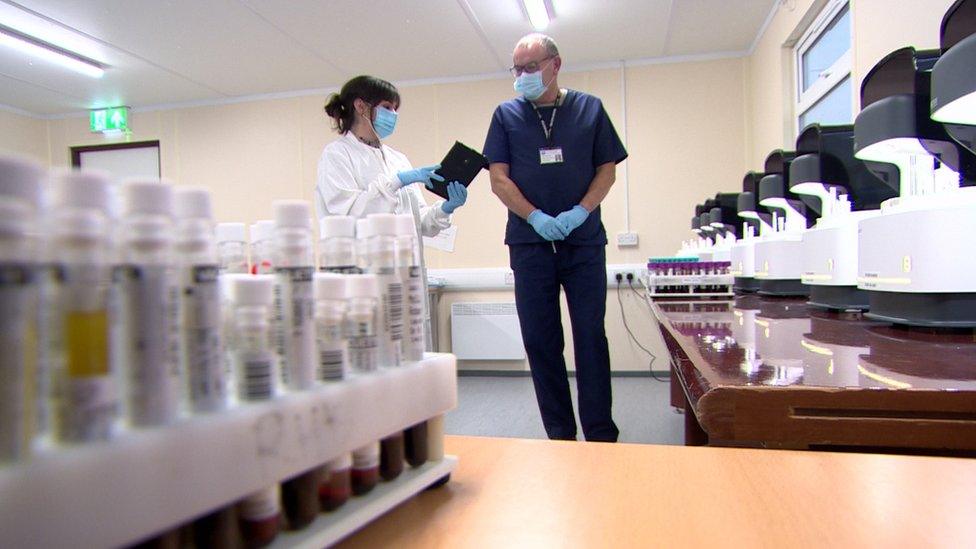
Dr Peter Sharpe hopes a greater value will be placed on virus research
"I think it's very good for staff morale as well to get people and teams involved in trials.
"It's encouraging the patients and it's encouraging staff on the ward as well."
And Dr Sharpe is hopeful of a long-term effect - not just on the pandemic but on the field of research as well.
"I would hope that one of the lasting legacies of Covid has been that many will see how important research has been, how it has changed the course of the Covid pandemic and hopefully we'll see a lot more investment and manpower and human resource and enthusiasm for it in the future."
Related topics
- Published15 March 2022
